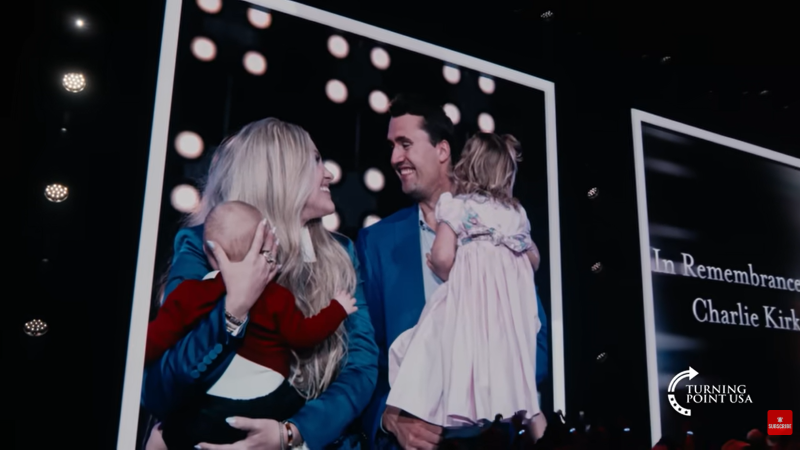The Children of Ellen and Disney
Sign up for a six month free
trial of The Stand Magazine!
(ABOVE: This cover of the October 11, 1997, issue of TV Guide shows Ellen DeGeneres ‘Out and In Charge’ following her ground-breaking ‘coming out’ episode in April of that year.”)
It’s been 25 years since actress Ellen DeGeneres waltzed into America’s living rooms with the groundbreaking “coming out” episode of Ellen, her Disney-owned ABC sitcom.
The landmark show opened the door to gay and lesbian characters and storylines like nothing before it.
Rise and fall
The sitcom first aired in 1994. DeGeneres was a likable personality and a talented comedienne, and initially, Ellen did well. That year the show jumped as high as 5th place in the Nielsen ratings and ended its maiden season in the 13th spot.
However, it plummeted to 39th place by the end of the next season and then closed out the spring of 1996 at number 44.
During the fall season of 1996, the show’s writers began to tease the Ellen audience about the lesbianism of the main character. Was the character going to become the first lead in television history to come out as homosexual? Was DeGeneres herself a lesbian?
It eventually became very clear that Disney wanted Ellen to come out of the closet as a way to affect the sympathies of “straight America.” What better way to do that than with a comedy?
Amazingly, by the time the infamous coming-out episode aired on April 30, 1997, the tactic had borne fruit. A stunning 42 million viewers watched at least part of the episode, while 36 million watched the entire show. TV’s top-rated series at the time – ER – barely eclipsed Ellen’s numbers for the week. The viewership accounted for nearly one-quarter of U.S. households with televisions.
One ABC network executive raved that “the show’s performance exceeded our expectations by more than 30%.”
It cannot be denied that getting 42 million people to watch the same show on the same night was no small feat at the time. As a tactic to increase viewership, it succeeded brilliantly.
However, the following episodes saw numbers begin to tumble. DeGeneres appeared determined to turn the sitcom into a weekly examination of the character’s coming out woes. Even the enthusiasm of the homosexual fan base couldn’t boost Ellen’s numbers as the show hemorrhaged viewers. By the spring of 1998 – one year after the historic episode – Ellen was gone.
Disney had used the sitcom and the actress to push the boundaries of homosexuality on the small screen, but when the show had ceased to be successful, it was executed like a heretic in a medieval court.
DeGeneres bitterly complained that Disney was no longer supportive of a show with a lesbian lead.
Leading the way
She couldn’t have been more wrong. In fact, the Mouse House was still as supportive of homosexuality as it ever had been. Most television critics at the time said the show was canceled because Ellen had returned to mediocrity.
A year after the show got axed, for example, Tim Goodman, San Francisco Examiner television critic, explained: “We learned as viewers that watching a poorly written show about a gay person was as boring as watching a poorly written show about a cop, or a doctor, or a husband and wife and their dumb baby.”
What many people didn’t know at the time was that Ellen wasn’t the first time Disney had pushed the normalization of homosexuality.
As a corporation, Disney had already helped underwrite a 1993 Hollywood benefit for the National Gay and Lesbian Task Force and then extended company health benefits to same-sex domestic partners among its employees. And Disney film subsidiary Miramax was responsible for controversial homosexually-themed films such as Priest, Chasing Amy, and Lie Down with Dogs.
In 1995, Disney-affiliated Storyline Entertainment produced the controversial made-for-TV movie Serving in Silence: The Margarethe Cammermeyer Story. Based on a lesbian Army officer’s experience, the film plied viewers with a one-sided message in favor of allowing homosexuals in the military.
Serving in Silence was produced by homosexuals Craig Zadan and Neil Meron, who praised Disney for “leading the pack” on “progressive” programming in favor of homosexuality.
“We’ve always found Disney more than willing to let us present gay stories,” Meron said. “People get the company’s traditional American family image mixed up with what is in fact a very inclusive, forward-thinking company.”
By the fall of 1996, Disney/ABC had taken the lead in the primetime promotion of homosexuality. According to the Gay and Lesbian Alliance Against Defamation at the time, of the 28 lesbian, gay, bisexual, and transgender regular characters on primetime television that season, 13 were on ABC. The NBC network trailed behind with only 6.
As 1997 dawned, Disney/ABC aired what was considered at the time to be the most passionate lesbian kiss ever shown on television –– on the January 11 episode of the drama Relativity.
Inside the entertainment industry, no one was surprised, as Disney’s support for homosexuality was an open secret. Openly gay entertainment billionaire David Geffen confirmed at the time that then-Disney chairman Michael Eisner was “very homo-friendly.”
Kicking open the door
Most experts agree that Ellen changed the television landscape forever.
For example, despite his impression of Ellen’s lack of overall quality, USA Today TV critic Robert Bianco called the coming-out episode “a historic event.” He added, “TV will never be the same.”
As Ellen was in its death throes in the fall of 1998, it had done its job –– to make homosexuality commonplace in primetime. On virtually every network, a pride parade of various homosexual characters, storylines, and shows would march on until it seemed as if half the entertainment world were gay.
One commentator triumphantly remarked not long after Ellen was canceled, “Through the closet door flung open by Ellen two years ago, a small battalion of young homosexual characters are streaming into TV’s most-talked-about dramas.”
That battalion is the militant march of the children of Ellen DeGeneres, Ellen, and Disney.
The unexpected throng of 42 million Ellen viewers who watched the coming-out episode – viewers who were not repulsed by the homosexual theme but actually quite curious – was all the permission Hollywood needed. The episode made it clear that a lead character could be homosexual; that advertisers did not have to shy away from gay-themed programming; and that mainstream America would watch a show with gay characters if it was well-written.
While it was likely that some entertainment giant would have eventually kicked that door open, Disney is the company that actually did it.
Not unsurprisingly, the Mouse House continues to champion the LGBTQ agenda. Its most recent controversial decisions are stunning. It publicly opposed the Parental Rights in Education law in Florida, a law that simply bans the discussion of sexual orientation and gender identity for public school kids in kindergarten through grade three – and vowed to work for the law’s repeal. Then Disney decided to restore a lesbian same-sex kiss (it had earlier been deleted) in a children’s film, the animated movie Lightyear.
To appropriate a verse from God’s Word, the Mouse cannot change its spots. Moreover, it’s clear that Disney does not want to.
(Editor's Note: This article is a sneak peak into the July print edition of The Stand. Click HERE to subscribe.)

Sign up for a free six-month trial of
The Stand Magazine!
Sign up for free to receive notable blogs delivered to your email weekly.



















